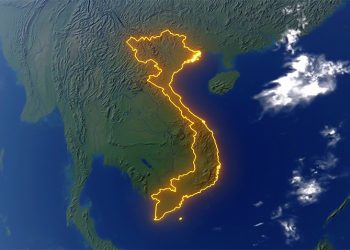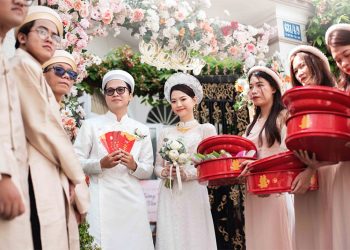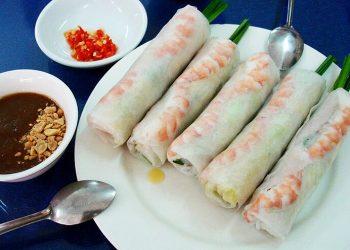What makes Vietnam unique? Vietnam, a small country in Southeast Asia, holds countless fascinating features that make it stand out in the world. From its majestic natural landscapes to its rich cultural heritage and resilient history, Vietnam carries a unique charm. Let’s explore what makes Vietnam special on the global stage.
Table of Contents
What makes Vietnam unique?
Vietnam is not only a captivating travel destination but also a place filled with fascinating experiences for international visitors. Let’s explore the unique features that make Vietnam truly special.
1. Stunning Natural Beauty
Vietnam is renowned for its breathtaking natural landscapes, with towering mountains, pristine beaches, and vibrant ecosystems. In the central and southern regions, long stretches of coastline boast crystal-clear waters, while the northern region is known for its rugged mountain ranges. One of the most famous landmarks is Ha Long Bay, recognized by UNESCO as a World Natural Heritage site. Its thousands of limestone islands rising dramatically from the sea create an unforgettable and awe-inspiring view.
Other notable destinations include Da Nang, with attractions such as Son Tra Peninsula, My Khe Beach, and Dragon Bridge. In the north, places like Sapa and Dong Van Karst Plateau offer stunning scenery, attracting adventurers and nature lovers alike.
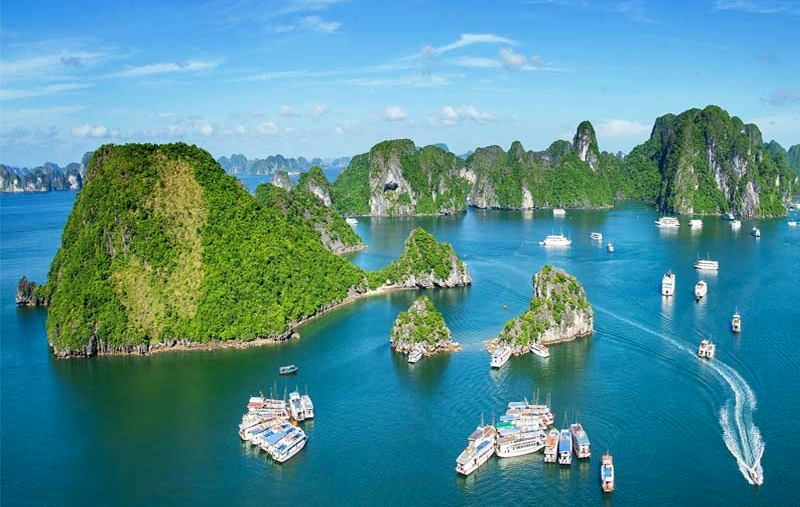
2. A Rich and Diverse Culture
Vietnam’s culture is a product of over a thousand years of history, influenced by both East Asian and Southeast Asian civilizations. The country boasts a rich array of traditions, festivals, and customs. Notable cultural celebrations include Tet (Lunar New Year), Mid-Autumn Festival, Hung Kings’ Festival, and the Perfume Pagoda Festival, each preserving values passed down from ancient times.
Traditional Vietnamese handicrafts have also endured through generations. Villages like Bat Trang, famous for pottery, Dong Ho, known for folk paintings, and Van Phuc, celebrated for its silk weaving, continue to thrive, showcasing the intricate and meticulous artistry of the Vietnamese people.
3. Diverse and Irresistible Cuisine
Vietnamese cuisine is renowned for its flavorful and healthy dishes, making it a key attraction for international visitors. Some of the country’s most iconic foods, such as pho, bun cha, banh mi, and goi cuon (spring rolls), have gained global recognition. These dishes are not just delicious but also reflect the rich culture and daily life of the Vietnamese people.
What adds to the allure of Vietnamese food is its affordability. With just one dollar, visitors can enjoy a variety of delicious local foods, a factor that many foreign tourists find delightful during their travels in Vietnam.
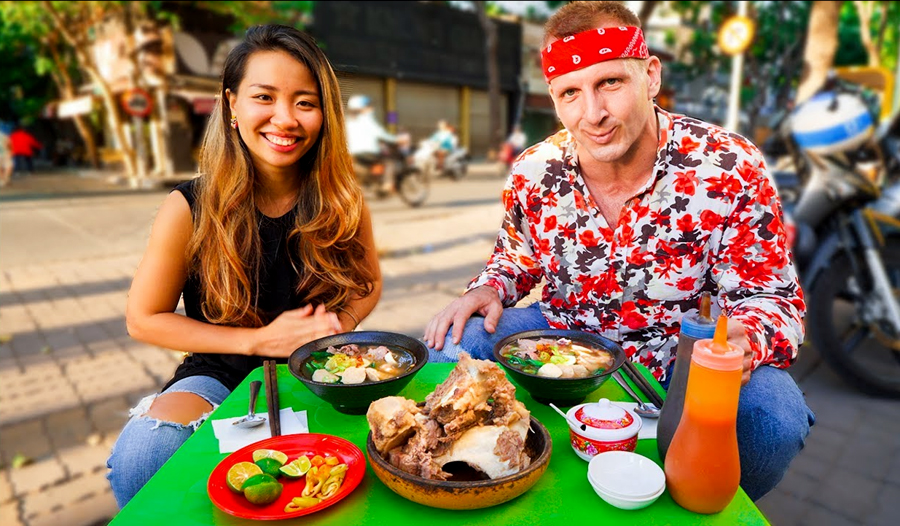
4. Resilient History of Struggle
Vietnam’s unique position in history is marked by its successful resistance against foreign powers, including colonial France and imperial America. The Vietnamese people have always displayed a strong sense of unity and unwavering determination, willing to fight for their nation’s independence and sovereignty.
Historical landmarks like the Imperial Co Do Hue, Independence Palace, and Cu Chi Tunnels serve as powerful reminders of Vietnam’s patriotic spirit and the resilience of its people. These sites help illustrate the nation’s capacity to overcome adversity and inspire admiration for its enduring strength.
>> Related: Cost of living in Vietnam? How much to live comfortably in Vietnam?
5. Friendly and Hospitable People
One of the most remarkable aspects that makes Vietnam special is the friendliness and hospitality of its people. No matter where visitors go in Vietnam, they are met with warmth and sincerity from locals.
Whether it’s offering directions or sharing stories about their culture, history, or daily life, the Vietnamese people are known for their openness and kindness, leaving lasting impressions on foreign visitors. Their welcoming attitude creates a sense of warmth and makes travelers feel right at home.
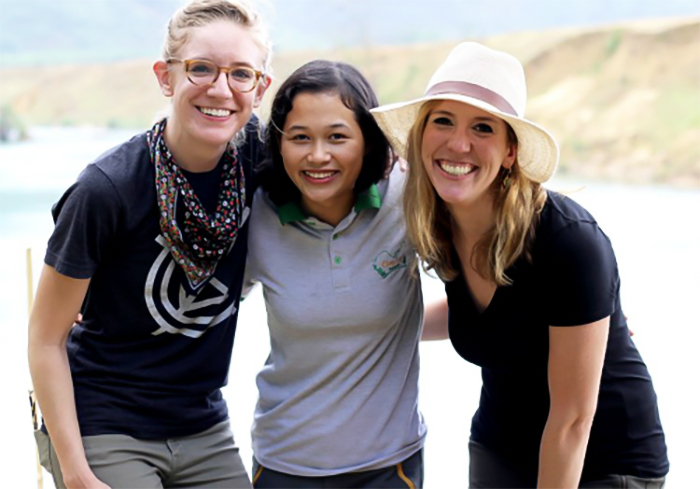
6. Rapid Development and Global Integration
In recent years, Vietnam has emerged as one of Southeast Asia’s fastest-growing economies, driven by progressive government policies and strategies that have attracted foreign investment. Major cities like Hanoi, Ho Chi Minh City, and Da Nang have rapidly modernized, with high-rise buildings, commercial centers, and industrial zones transforming the urban landscape.
With this accelerated pace of development, Vietnam is poised to become one of the most important economies in Asia, continuing to integrate into the global market while preserving its unique cultural identity.
What makes Vietnamese culture unique
Vietnamese culture is a rich tapestry, shaped by a blend of history, geography, customs, and religions. This creates a distinct character that makes Vietnamese culture stand out. Let’s explore the unique aspects of this culture in more detail.
1. Multi-Ethnic Diversity
Vietnam is home to 54 ethnic groups, each with its own distinct culture, customs, language, and traditional attire. Major groups like the Kinh, Tay, Nung, Thai, H’Mong, and Muong contribute to a vibrant cultural mosaic.
For example, the Thai people are known for their graceful Xoe dance during festivals, while the H’Mong are famous for their intricate handmade textiles. These unique cultural traits captivate many international visitors, showcasing the diversity that defines Vietnam.
>> Related: Poverty rate in Vietnam, Is Vietnam in poverty?
2. Influence of Confucianism, Buddhism, and Taoism
Vietnam is a crossroads of major religions, particularly Confucianism, Buddhism, and Taoism, alongside indigenous folk beliefs. Confucianism profoundly impacts societal ethics, emphasizing family values, rituals, and respect in relationships.
The fusion of these religious influences has created a rich spiritual culture, exemplified by festivals like Vu Lan (Buddhist Festival of Gratitude) and the Perfume Pagoda Festival. These traditions highlight respect for ancestors and the deep philosophical views on life and death that are central to Vietnamese culture.
3. Ancestor Worship Traditions
Ancestor worship is one of the most important customs in Vietnamese culture, deeply rooted in the idea of “remembering your roots.” For the Vietnamese, honoring ancestors is not only a spiritual duty but also a way to express gratitude, preserve family traditions, and strengthen generational bonds.
In almost every Vietnamese home, an ancestral altar is placed in the most prominent location. Special occasions like Tet (Lunar New Year) or death anniversaries bring families together to honor their ancestors. This practice reflects a strong respect for family heritage and distinguishes Vietnamese culture from many other nations.
4. Traditional Festivals and Customs
Vietnam’s cultural vibrancy is showcased through its numerous traditional festivals, where people come together to participate in cultural, religious, and recreational activities. Each region and ethnic group has its own distinct festivals that reflect their local traditions.
For instance, in northern Vietnam, the Giong Festival in Soc Son commemorates the legendary hero Saint Giong. In central Vietnam, the Cau Ngu Festival is held by coastal fishermen, while in the south, the Khmer people celebrate the Ok Om Bok Festival. These festivals not only pray for peace and prosperity but also provide opportunities for communities to connect and pass down cultural values to future generations.
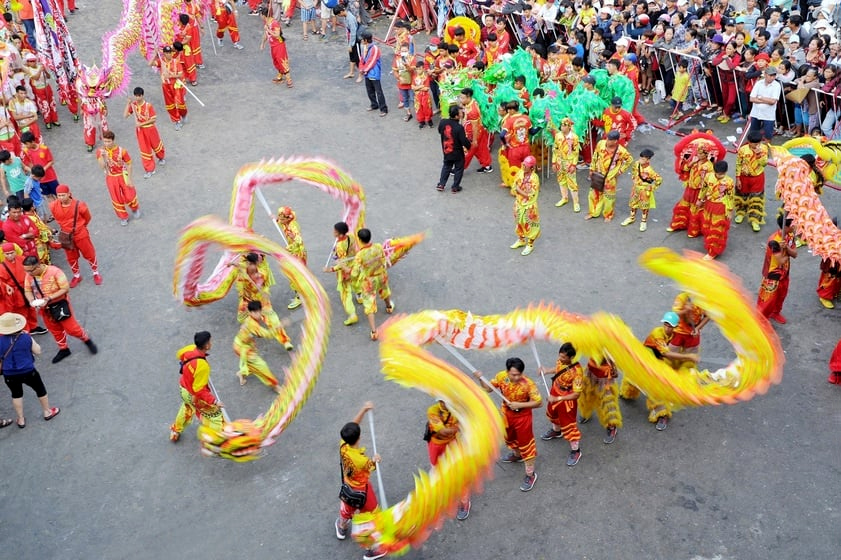
5. Etiquette and Respect in Social Behavior
In everyday life, Vietnamese people place great importance on manners, ethics, and respectful behavior. Values such as filial piety, respect for elders, and humility are highly regarded and are reflected in the way people communicate and interact.
This respect is seen in gestures like bowing to elders, speaking politely, and maintaining traditional values in both speech and behavior. The emphasis on proper etiquette creates a harmonious society and leaves a lasting impression on foreign visitors who admire the cultural respect deeply ingrained in Vietnamese life.
>> Related: Vietnamese attitude towards foreigners
6. Folk Art and Traditional Performance
Vietnam boasts a rich and diverse tradition of folk art and performance, including forms like cheo (traditional opera), tuong (classical drama), ca tru (ceremonial singing), and water puppetry. These art forms not only entertain but also convey lessons about Vietnam’s history, culture, and folklore.
One notable example is Hat Xoan, a form of ceremonial singing from Phu Tho province in northern Vietnam, which was recognized as an intangible cultural heritage by UNESCO in 2011. This form of singing exemplifies the depth and richness of Vietnam’s folk culture, with its origins dating back to ancient times.
What the Media Says About Vietnam’s Uniqueness
According to VNExpress, one of the most widely read newspapers in Vietnam, the country’s street food is a highlight that intrigues many international tourists. These unique dishes offer visitors new and exciting culinary experiences, showcasing the richness of Vietnam’s food culture. (Link to article: https://e.vnexpress.net/news/travel/places/vietnam-s-unique-street-food-delicacy-duck-embryo-fish-noodle-soup-3997354.html)
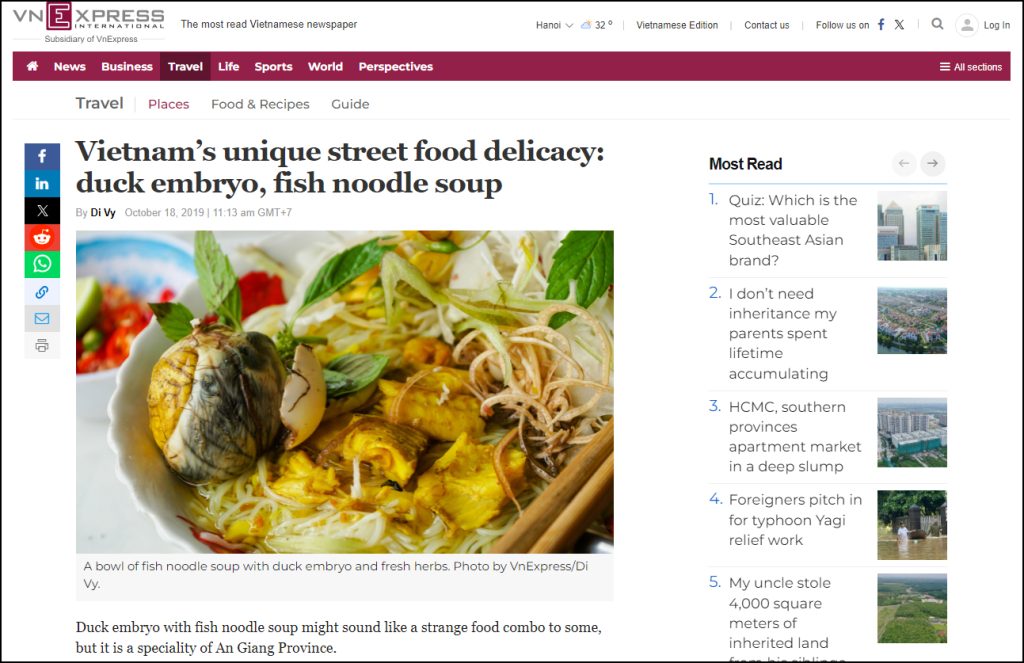
VNExpress also reports that foreign tourists are enthusiastic about experiencing traditional Vietnamese customs during Tet (Lunar New Year) in Ho Chi Minh City. This gives travelers the opportunity to explore and appreciate the beauty and uniqueness of Vietnamese culture and traditions. (Link to article: https://e.vnexpress.net/news/places/foreign-tourists-experience-tet-traditions-at-hcmc-festival-4691835.html)
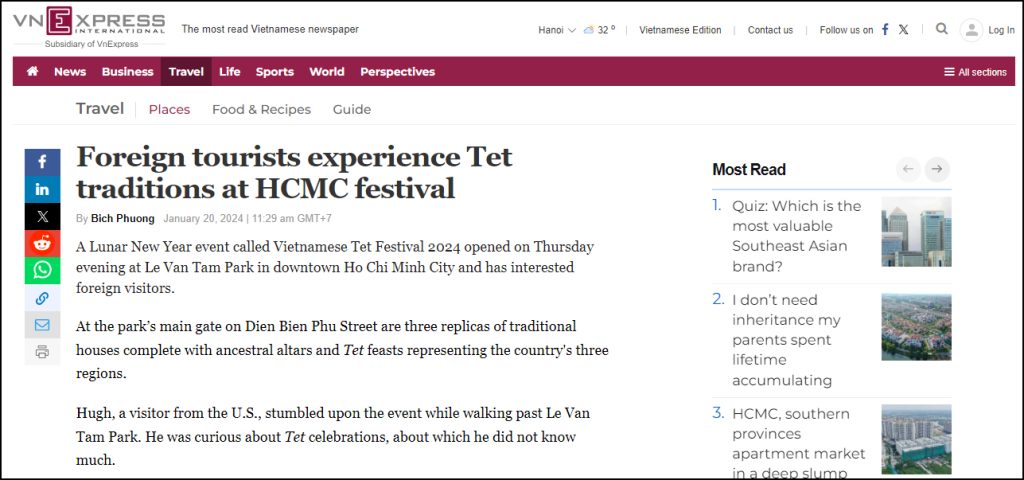
The bottom line
What makes Vietnam unique? Vietnam is not only a country of stunning natural landscapes but also a place where diverse cultures and rich culinary traditions converge. Its long-standing history, cultural diversity, and vibrant food scene create a distinct and memorable experience for international visitors.


